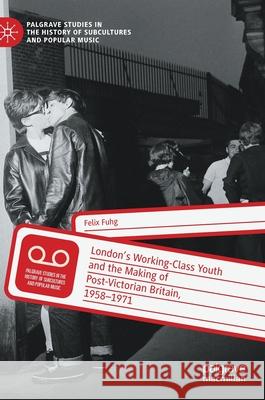London's Working-Class Youth and the Making of Post-Victorian Britain, 1958-1971 » książka
topmenu
London's Working-Class Youth and the Making of Post-Victorian Britain, 1958-1971
ISBN-13: 9783030689674 / Angielski / Twarda / 2021 / 441 str.
Kategorie BISAC:
Wydawca:
Palgrave MacMillan
Seria wydawnicza:
Język:
Angielski
ISBN-13:
9783030689674
Rok wydania:
2021
Wydanie:
2021
Numer serii:
000796697
Ilość stron:
441
Waga:
0.69 kg
Wymiary:
21.01 x 14.81 x 2.54
Oprawa:
Twarda
Wolumenów:
01
Dodatkowe informacje:
Wydanie ilustrowane











